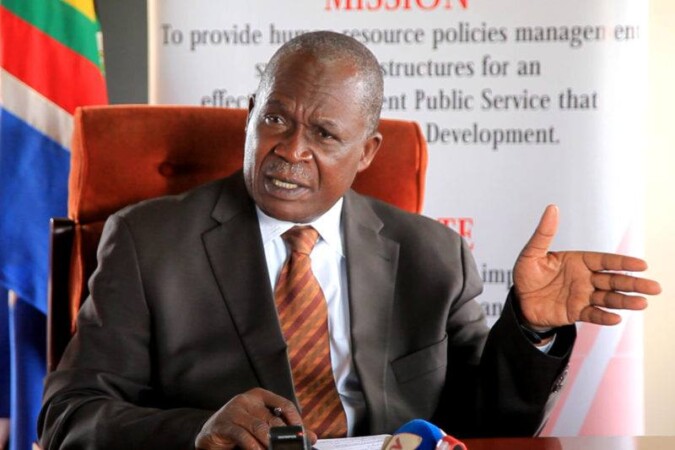
The Ministry of Public Service has outlined an ambitious salary enhancement strategy aimed at bridging wage disparities across Uganda’s public service sector. However, the plan, projected to cost UGX688.9 billion in the 2025/2026 financial year, currently lacks budgetary allocation—raising concerns about its viability.
The proposal, part of the Ministry’s 2025/26 Ministerial Policy Statement, was presented to Parliament on April 9 by Public Service Committee Chairperson Ojara Mapenduzi. He revealed that while the strategy is a phased response to long-standing salary disparities, its implementation is threatened by the absence of dedicated funding in the proposed national budget.
“In FY2025/26, the Ministry plans to continue implementing the salary enhancement strategy, which requires UGX688.9 billion to close wage gaps in key sectors. However, this funding has not been allocated,” Mapenduzi told lawmakers during a plenary session.
He warned that failure to fund the plan could prolong salary inequalities, dampen morale, and hinder service delivery in critical sectors such as health, education, and science. The Committee criticised the government’s prior focus on enhancing scientists’ salaries alone, calling for an equitable approach that benefits all public servants.
“Prioritising one group over others may breed dissatisfaction,” Mapenduzi said. “All workers are essential to the functioning of the state, and salary improvements should be inclusive and sustainable.”
UGX137 Billion Sought for Civil Service College Expansion
The Committee also backed the Ministry’s push to revitalise the Civil Service College Uganda (CSCU) in Jinja. Established in 2010 to improve the capacity of civil servants through training and research, the College is facing infrastructural and logistical challenges.
To address these, the Ministry is seeking UGX137 billion for Phase II of the College’s expansion. An additional UGX400 million is earmarked for training activities in FY2025/26, including performance improvement and strategic leadership development.
Mapenduzi noted that CSCU’s effectiveness has been hampered by insufficient training space, high accommodation costs in Jinja, and decentralised decision-making. The expansion, he said, would enhance training delivery, reduce costs, and create a more standardised national training framework.
Push for National Emoluments Review Board
In another major reform, the Ministry is requesting UGX7.860 billion to establish the long-awaited National Emoluments Review Board (NERB), designed to harmonise salaries across government institutions.
The NERB, once operational, will tackle salary fragmentation between mainstream public servants and employees of statutory agencies. It is expected to promote fairness, enhance accountability, and boost morale across the public sector.
However, the Ministry still faces a UGX1.860 billion funding gap for the initiative. Mapenduzi said the Board will be established through legislation currently under development via amendments to the Public Service Act.
“The NERB will be a cornerstone in our efforts to streamline compensation and promote equity within public service,” he added.
The Committee concluded by urging the Ministry of Finance to prioritise funding for the salary enhancement strategy, CSCU expansion, and NERB establishment in the FY2025/26 national budget.